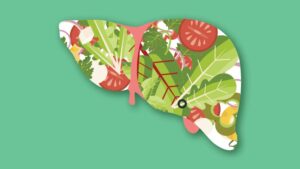The liver is one of the most important organs and constitutes the biggest organ in the body. Its size also talks about its important role and its necessary for constant blood supply. The liver’s reddish color owes itself to its immense blood supply, as there are a host of arteries that supply blood to it. Essentially, the liver aids in the digestion of food and cuts down big food particles into smaller ones. The liver produces bile juice that helps in digestion and helps to save vitamins, fats, proteins, and minerals.
Understanding Liver Damage
The liver’s function as the body’s main detoxifier also makes it vulnerable to damage. All toxins that are consumed by us pass through the liver first. It is important to put in mind that the liver is a self-regenerating organ. This means that it heals itself unless severely impaired. While toxins are filtered out, sustained intake of these could cause permanent and irreversible damage to the liver.
The most well-known cause of liver Diseases is the prolonged and excess consumption of alcohol. Occasional to reduced alcohol consumption may not cause lasting damage to the liver, but any excesses certainly will. Regular and excess consumption of alcohol leads to a build-up of fatty deposits in the liver, impairing its ability to function normally. Similarly, steroid supplements are taken by bodybuilders and trainers also lead to serious liver injury. Protein supplements, on the other hand, improve liver health. Apart from alcohol and steroid intake, excess consumption of sugars can also lead to a condition called fatty liver. Obesity is another cause for the occurrence of fatty liver. If not handled timely, the fatty liver could ultimately lead to liver cirrhosis.
Importance of Diet in Liver Health
It remains established without any doubt that diet is central to maintaining the well-being of the human body. A healthy and nutritious diet is one that has the right proportion of carbohydrates, proteins, and fats (the macronutrients), and vitamins and minerals (the micronutrients). Just as an unhealthy and imbalanced diet can lead to the development of a fatty liver, giving up on unhealthy dietary habits can help reverse the condition, experts believe.

A Closer Look at The Dietary Changes for A Healthy Liver
Let us now take a closer look at the major components of our diet and the role each plays in the maintenance of liver health. To function optimally, the cells in our body require energy, and this energy is supplied from the glucose in our food. This metabolic fuel, the glucose, is primarily supplied by the carbohydrates in our diet. A diet rich in carbohydrate leads to its conversion into glycogen which is eventually deposited as visceral fat.
Proteins are the building blocks of our bones and muscles. A sedentary lifestyle leads to the conversion of proteins into glucose instead of being utilized in muscle building. What this means is that even in the absence of carbohydrates in the diet, glucose is formed in the body. Apart from this, when a person’s diet is deficient in carbohydrates, the body starts utilizing the stored glycogen deposits, thus naturally reversing obesity and melting away visceral fat. Since the diet cannot be deficient in protein (or it will lead to muscle breakdown), it is important to cut down on the carbohydrates and avoid all sugars to reverse a fatty liver condition.
High protein foods such as meat, eggs, pulses, soybean, and cottage cheese have the go-ahead from dieticians and nutritionists. Vitamins and minerals in the diet come from raw vegetables and fruits. This means lots of salads, fruits, and juices make up an essential part of a healthy diet. However, it is the fiber that must provide the bulk to the food. Lack of fiber damages the intestinal lining and in turn damages the liver.
Eventually, a stable and healthy diet that sustains liver health must be low in carbohydrate, moderate in fats, and high on protein with generous portions of fruits and vegetables. Not only will it keep up a good liver but also keep a person in great health.
